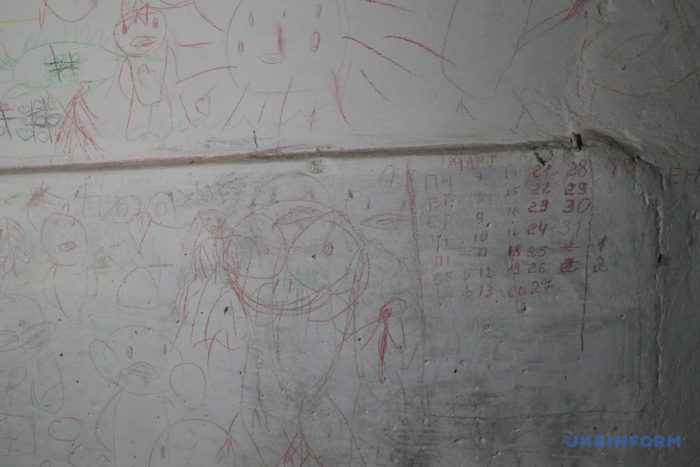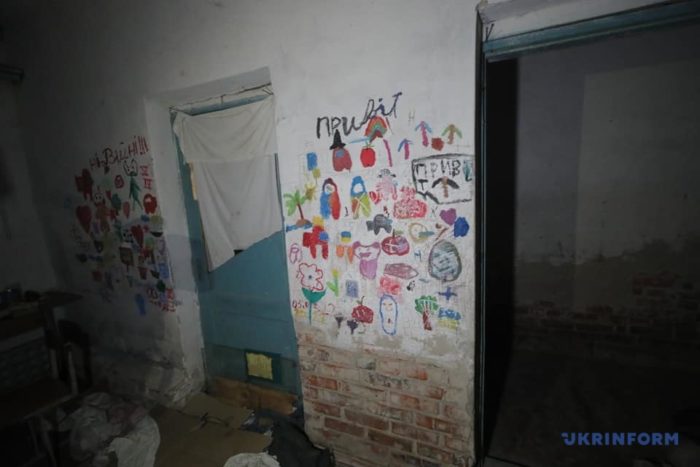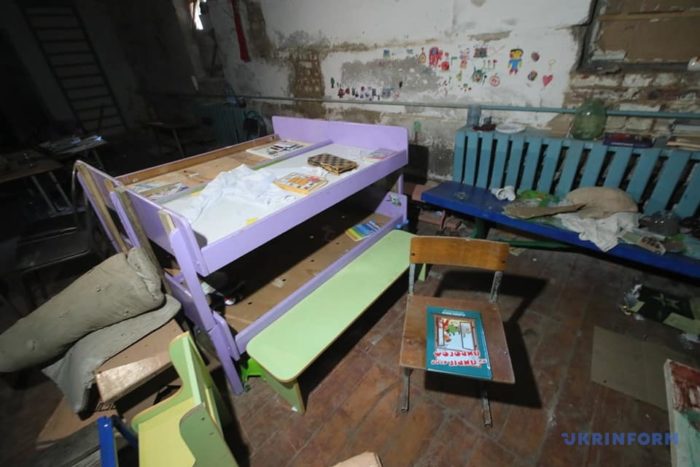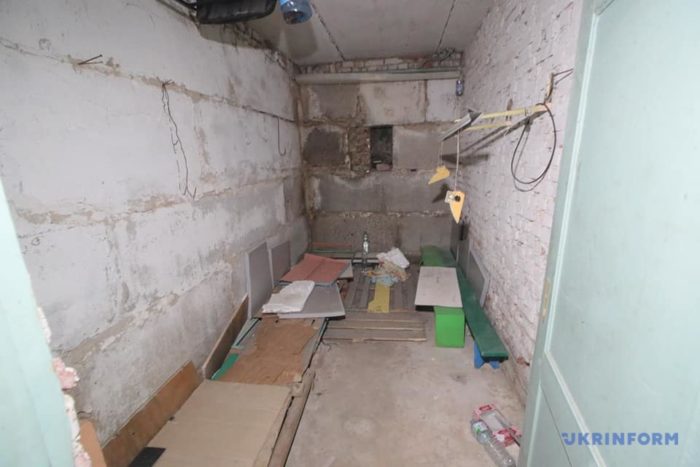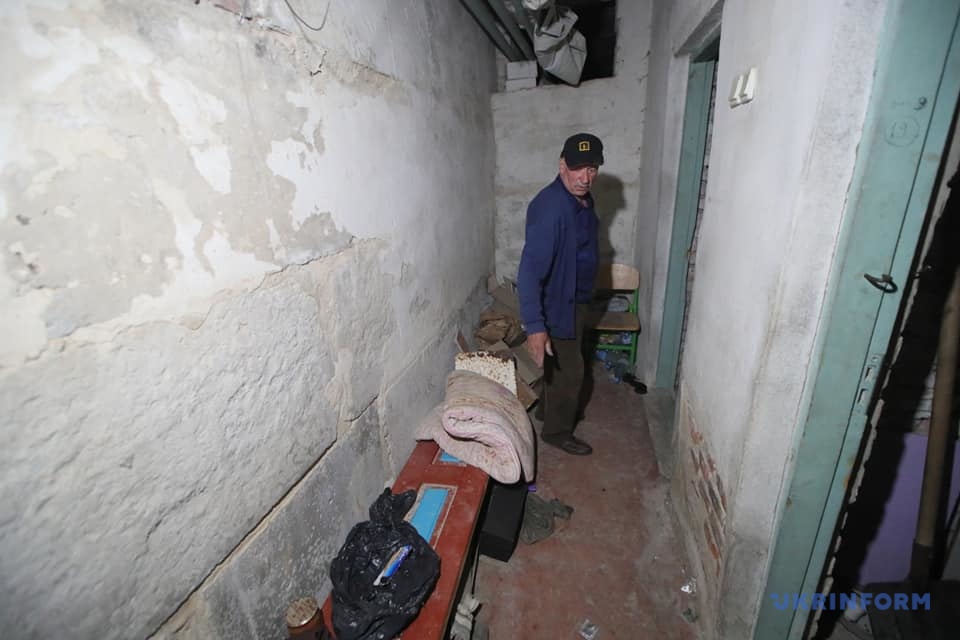Putin’s brutal approach to eliminating the Ukrainian population currently centers on eastern and southern Ukraine. For journalists and human rights organizations, it is extremely difficult to gather information about Russian war crimes in the occupied territories, namely in occupied Kherson Oblast and in parts of Occupied Donbas.
Day and night, Russian troops relentlessly pound villages and towns with artillery fire, thus emptying them of their people through death or flight. Once these cities and towns are devoid of human life, Russia can then “liberate” what is left, seize the territories, integrate them into its sphere of influence, and position troops for a further offensive.
Another ploy used by the Kremlin is the forced evacuation and internment of Ukrainian nationals in camps, both so-called filtration camps and detention camps.
Filtration camps in the occupied territories
The Russian army and Russian-controlled “DNR/LNR” militants are building a system of filtration camps in the occupied territories of Ukraine. They are also creating a database of residents of the occupied territories. Ukrainian nationals in these territories have no choice - all must be filtrated.
Ukrainian nationals attempting to leave the occupied territories must go through filtration camps. Some are detained for longer periods, some disappear and others are released and allowed to go their way.
Men of military age, most often ATO/JFO members, former service personnel and law enforcement officers, and pro-Ukrainian activists are automatically placed in filtration camps. One of the goals of these camps is to replenish the exchange fund. All the service personnel are subjected to interrogation, torture, and humiliation, and held in inhuman conditions
30-year-old Kateryna and her two sons, aged 6 and 11, were forced to undergo "filtration" in the village of Bezimmene. Kateryna says the Russians checked her phone thoroughly and examined her for “nationalist” tattoos.
“We were told to undress… some down to their panties, others completely naked. No explanations, no reasons. The men were taken away separately. They were held much longer. They checked all our belongings – backpacks, suitcases, plastic bags. Women who had relatives or friends in the Ukrainian army or police were threatened. They said they’d find their men and kill them, promising to send the men’s heads back in boxes,” says Kateryna.
Petro Andriushchenko, advisor to the mayor of Mariupol, confirms that some Ukrainian nationals disappear in these filtration camps. Those labeled as “unreliable” are sent to former penal colony No.52 in the village of Olenivka, Donetsk Oblast.
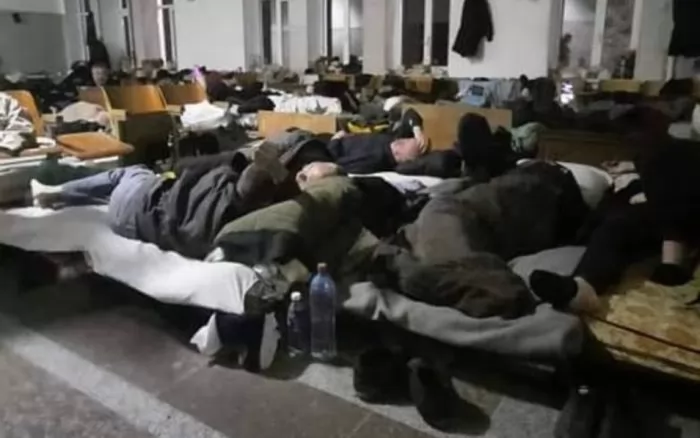
The filtration procedure takes place before a so-called commission if the Ukrainian national is suspected of “hostile activities”. Fingerprints, photos, data are noted. The Russians also ask about relatives or friends in the Azov Regiment and/or in the Security Service of Ukraine (SBU), about direct participation in hostilities, about political leanings, and about any connections to western countries. If all goes well, the fleeing Ukrainians receive a “certificate of filtration”, a small piece of paper with a stamp and a date.
It should be noted that the filtration procedure violates Article 8 of the European Convention on Human Rights
, which protects one’s right to respect for one’s private life, family life, home and correspondence (letters, telephone calls and emails, for example).
Location of filtration camps identified in occupied Ukraine and in the Russian Federation
Human rights activists and journalists have identified 23 places where Russian soldiers have imprisoned Ukrainian civilians and soldiers -- 13 locations in Russia, and 10 others in the occupied territories of Luhansk and Donetsk Oblasts and in occupied Crimea. Hundreds of people are held in appalling conditions, without proper medical care, often subjected to torture and humiliation.
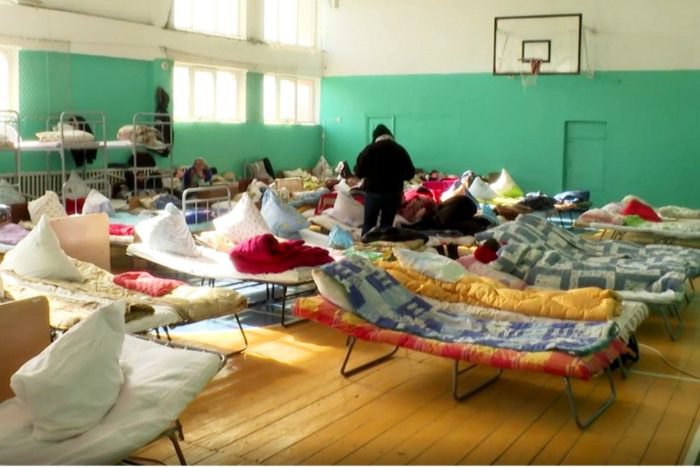
The prisoners are mostly housed in bomb shelters, pre-trial detention centers, penal colonies, state administration premises, and/or police stations.
There are several locations in the occupied areas of Kherson and Zaporizhzhia Oblasts. Russian forces began kidnapping and imprisoning Ukrainian civilians in the southern regions, including Kherson, Nova Kakhovka, and Berdiansk, after the rallies in support of Ukraine.
The few Ukrainians who have been released from these detention camps testify that some were arrested for no reason, others -- for their pro-Ukrainian position or for relaying “suspicious” information on the phone. Former prisoners often recount horrifying tales of torture and brutality.
“I cried and shouted for mercy. I finally gave up when they attached electric wires to my earlobes. The charge was so strong that I had the impression that the upper part of my head had broken away and flown somewhere into the void,” says a Berdiansk resident in her testimony to the Media Initiative for Human Rights (MIPL).
Twenty-five volunteer drivers who were transporting humanitarian aid from Zaporizhzhia to Mariupol were kidnapped and illegally detained for two months on the territory of former penal colony No.120 in the occupied village of Olenivka, Donetsk Oblast. Their families kept the information secret, as they feared that too much publicity could harm them.
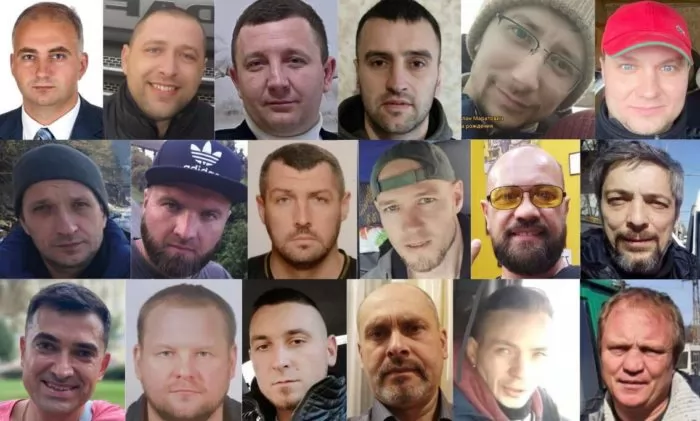
However, according to the latest information, the Ukrainians will be tried under so-called “DNR laws” under Part 2 of Article 233 (participation in a terrorist group), which entails a heavy fine and imprisonment of five to ten years.
Ukrainian servicemen tortured in Kherson Oblast
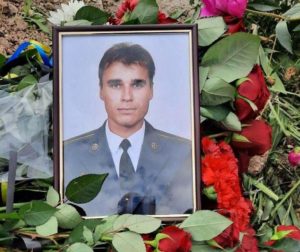
Denys Myronov from the Kherson Territorial Defense forces was tortured and killed in Russian captivity.
Denys was captured on 27 March, severely and regularly interrogated and beaten. Ukrainian serviceman Anton was Denys’s cellmate and was able to testify to the horrors when he was released during a prisoner swap.
Denys probably suffered from a laceration to his heart or other vessels caused by massive chest injuries.
The prisoners’ arms were bound all the while. They wore bags over their heads, were tortured with electric shocks, and beaten with truncheons or canes.
On 18 April, the Ukrainian POWs were transferred to Sevastopol. Denys died on 23 April at the Sevastopol Naval Hospital.
On 24 May, Denis’s wife, who had left Kherson with their child, received a call from the Mykolayiv police who reported that they had received Denys’s body from the occupied territory during an exchange.
Denys’s death certificate states that his death was caused by a chest injury due to a broken rib.
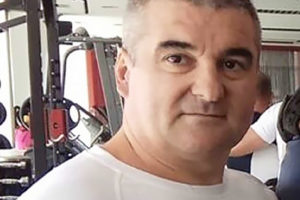
Soldier Vitaliy Lapchuk was captured with Denys Myronov, gravely beaten, and tortured. His wife, Aliona, confirms that Vitaliy’s skull was shattered and his body was black and blue from the beatings.
The beatings continued in the Kherson police department. FSB officers interrogated the prisoners and if they did not like their answers, they took the prisoner to the special torture chamber in the basement.
Vitaliy Lapchuk’s body was found in a river on 22 May. A kettlebell was attached to his leg. His family was informed on 9 June.
Mykola Kikkas, MIPL expert and lawyer with the Regional Centre for Human Rights, states that the atrocities committed by the Russian forces are war crimes because they “violate the basic principles of all Geneva Conventions, which prohibit torture and the intentional killing of POWs and civilians.”
A case in point relating to Russian war crimes - Yahidne, Chernihiv Oblast
The village of Yahidne is located 140 km north of Kyiv, near the Ukrainian border with Belarus. The Russians occupied the area on the second day of the full-scale invasion and began digging in, delivering military equipment, and mining the entire area -- even the local gardens.
Villagers who protested were randomly selected and held for a whole month in the basement of Yahidne primary school - from 3 March to 31 March. The Russian occupying forces decided to establish their headquarters in the school.
On the door of this 21st-century concentration camp, the villagers drew a calendar to keep track of time. The 31 March reads: “Our guys have arrived!” Next to the door, they wrote the names of the dead. On the right -- the names of villagers who died in the basement; on the left -- those who were executed by the Russians.
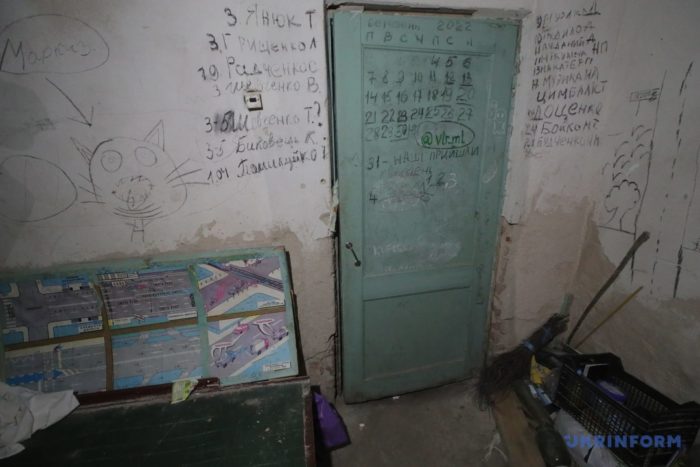
The villagers survived one month in inhumane conditions - lack of space, poor hygiene, and sanitation, and no access to air, food, or water. Ten elderly persons died; many suffered from diseases. Seven villagers were executed by the Russians.
The walls of the basement echo with terrifying inscriptions and personal tales of horror. Another wall was taken over by the imprisoned children, who drew images of life, hope, and imprisonment. In total, 77 children, including five infants were imprisoned in the dark, damp cellar.
When they left the area, the Russians decided to raze the village to the ground. 148 out of 180 private homes were seriously damaged; 16 were completely destroyed… beyond repair.
Torture chambers and detention camps in occupied Kherson Oblast
After Russian forces withdrew from their positions in northern Ukraine at the end of March, Ukrainian investigative teams and specialized police departments revealed gruesome findings of rape, torture, and other war crimes, prompting calls for international investigations.
Today, fighting remains intense in southern and eastern Ukraine as Russian forces regroup and push for new objectives, and similar allegations are emerging there.
Oleksiy Danyliak, first deputy prosecutor of the southern Kherson Oblast, which has been occupied by Russian troops since the first days of the war, reported that his office had opened more than 1,000 cases into alleged violations during the occupation, including murder, kidnapping, deportation or forcible relocation, torture, and sexual crimes.
However, it is extremely difficult to gather information about what is happening in the occupied territories of Kherson Oblast. As Russia tightens control over the region, people are increasingly afraid to speak out.
Those who manage to leave the area often delete all photos and videos from their phones for fear of being detained at Russian checkpoints.
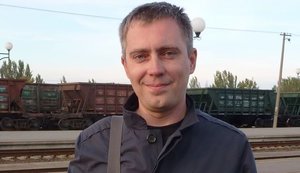
Oleh Baturin was a journalist for an independent newspaper in Kherson Oblast. A few days after the invasion, Russian soldiers seized him and tortured him for eight days. They hit him constantly with their rifle butts, on the back, ribs, and legs. Oleh confirms that he heard others being tortured in a chamber nearby and even witnessed the mock execution of a young man.
The journalist says that he and some other prisoners were then transferred to another room located in the Novokakhovka police building and locked up. According to Oleh Baturin, there are many ATO veterans in the detention centers of Kherson and they are particularly targeted by the Russian FSB.
A doctor who worked at a hospital in Kherson spoke to BBC under the cover of anonymity.
“I’ve seen signs of mutilation - hematomas, abrasions, cuts and slashes on the skin, signs of electric shock, abrasions from handcuffs, and signs of suffocation on the neck.”
He also recorded burns on people’s arms and legs, and one patient told him he had been beaten with a sand-filled hose. The doctor states that there were many seriously injured people who could not get adequate treatment.
“Among the worst were burns to the genitals, a gunshot wound in the head of a young rape victim, and burns from an iron on a patient’s back and abdomen. Another patient told me that the Russians attached two car battery wires to his groin and ordered him to stand on a wet rag,” says the doctor.
Tasheva said that Russian troops are especially targeting Ukrainian veterans and activists who protested against the illegal occupation and annexation of Crimea by Russia. People are being kidnapped from their homes and taken to an unknown destination where they are allegedly interrogated and tortured.
“This is exactly what we saw in Crimea in 2014. Their troops entered first, followed by brutal repressions against activists, and journalists. Afterwards, they held that so-called ‘referendum’ in Crimea,” she notes.
Furthermore, Russia is intentionally deporting Ukrainian citizens from mainland Ukraine to Crimea. Concentration camps are being set up near Crimea’s border with Kherson Oblast, where Ukrainians are interrogated to see if they have any history of anti-Russia activity.
According to reports from Ukrainians who have been detained in such concentration camps, Russian authorities force Ukrainian nationals suspected of being anti-Russian to undergo a “filtration process”.
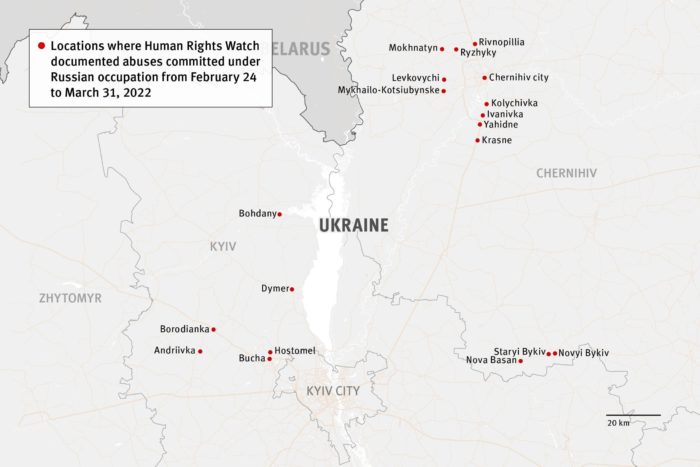
Therefore, it is most important for Ukraine’s supporters and for western countries not to lose sight of the barbarity of Putin’s atrocities and the moral responsibility to oppose them.
In his interview with The Atlantic, NATO Secretary-General Jens Stoltenberg states that the West has two fundamental tasks. The first is to help Ukraine stand up to Russia so that Putin does not succeed with his brutal use of force and violations of international law. The second task is to prevent the war from escalating, leading to a full conflict in Europe between NATO and Russia.
“In the middle of Europe, we have cities bombed, we have people that are our neighbours killed in the streets, massacred, and raped, It’s extremely important that we don’t forget the brutality because that helps us mobilize the solidarity … which we need for the long haul…Of course, it is emotional. This is about people being killed; it’s about atrocities; it’s about children, women being raped, children being killed.”
Related:
- Ukraine has documented more than 11,600 war crimes by Russian forces
- Russian war crimes in Katiuzhanka: torture chamber, toilets in classrooms, and stolen lingerie
- Russian war crimes. Mutilated bodies of Ukrainian soldiers found in trench in Kyiv Oblast
- Russia’s war crimes in Chernihiv Oblast: “They were beaten, tortured & executed…”
- Russian war crimes: is it possible to take Putin to justice?


